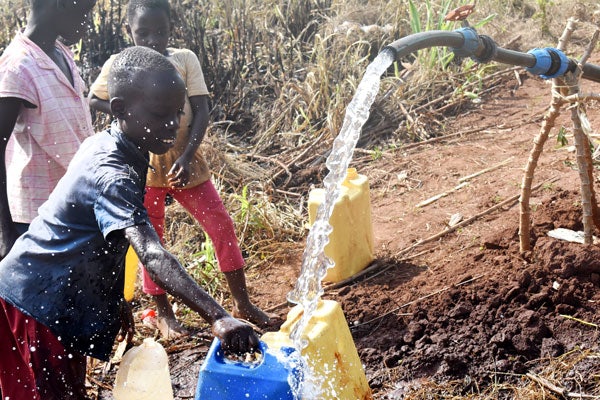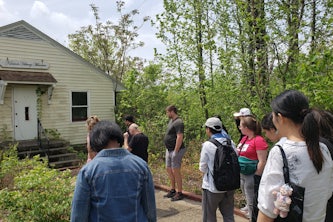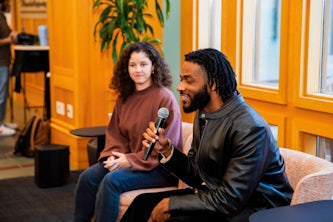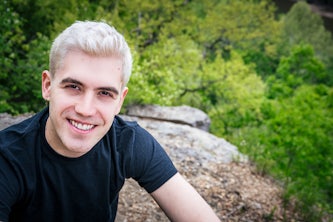EWB brings water to village half a world away
Students with Engineers Without Borders at WashU led a remote drill project that brought clean water to villagers in Uganda

In rural villages in Uganda, gathering water can be an intensive, all-day chore. Villagers — usually children and women — must walk miles to water sources to fill large containers to carry back to their homes. Reduced rainfall in recent years has also forced farmers to search for irrigation water or risk losing their crops.
To bring clean water to those in need, members of Engineers Without Borders (EWB) at Washington University in St. Louis have partnered with St. Francis Health Care Services, a medical center in the Central Region of Uganda, to build a new well for local villagers.
In 2019, students traveled to Uganda to meet with leaders of the nearby villages and assess a potential site, but their work was halted by restrictions caused by the COVID-19 pandemic. This past summer, a motivated team of five students and a faculty member from the McKelvey School of Engineering decided to move forward with the well drilling.
“In our assessment trip three years ago, we had the hydrogeologist analyze the site and identify a couple locations to drill for water,” said Raymond Ehrhard, faculty adviser for EWB and senior lecturer of energy, environmental & chemical engineering. "We decided to do a remote well drilling, which means our students managed everything, but a local EWB office was on site for the actual drilling.”
The students collaborated with hydrogeologists and engineers from Engineers Without Borders USA and Engineers Without Borders Uganda, and the results exceeded everyone’s expectations.
“After test pumping, our team confirmed a yield of 20 cubic meters an hour,” said Caleb Martonfi, project lead and a junior majoring in chemical engineering. “Other nearby wells only yield one to two-and-a-half cubic meters per hour.”
One cubic meter equals 1,000 liters or 265 gallons of water. In fact, there was so much water that it shocked local officials with the National Water and Sewage Corp., who had given up drilling in that area.
“When we reached out to them to request water usage permits, they expressed amazement that we had reached such a high yield,” Martonfi said. “We’ve spent hours on designs and calculations; sending hundreds of emails to experts, contractors and authorities; and writing pages upon pages of documentation, and we got to see our work make an incredible real-world impact.”
Ehrhard said he was proud of what the students accomplished despite the obstacles they faced working such a long distance from the site. Martonfi was joined by Jose Costales, a junior majoring in chemical engineering; Gabby Day, a junior seeking bachelor’s degrees in electrical engineering and computer engineering with a second major in computer science; Lleyton Martin, a junior majoring in biomedical engineering; and Elysia Quah, a sophomore majoring in chemical engineering.
“Engineers use science and technology to solve problems,” Ehrhard said. “We’re the bridge between the technical solutions and the people we serve. What our students are learning in Uganda is that ideas and solutions have to be based on science along with being sustainable for the people impacted.”
The group plans to continue its work and return to the village to install solar panels, a water pump and storage tanks, which will make it easier to store and distribute the water.
“Our team hopes to raise $100,000 to fund the next phase of our project, which includes designing an irrigation system for the farm, building water towers to distribute water to villages and a solar panel facility to power the pump,” Martonfi said. “We’ve received positive feedback, and we’re encouraged and motivated to begin the exciting next phase of our project.”




